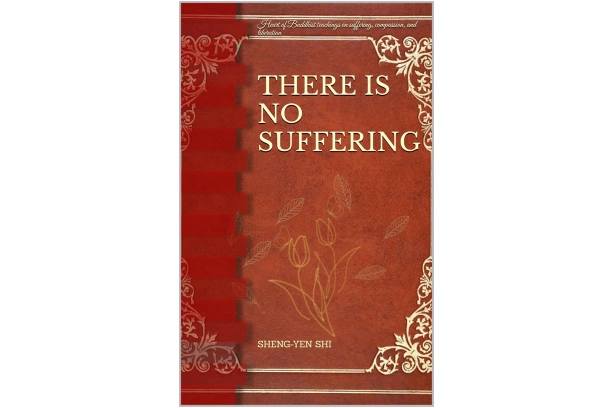Seven Stages of Inner Strength So Powerful It's Unstoppable
When you understand Zhuangzi, you realize that there are people whose mindset is so elevated that they transcend life and death, overcoming all adversity. People who reach this level are untouched by fame or fortune, unbothered by worldly matters. For them, all of life’s worries are like fleeting clouds. If you want to find a quiet place in your heart, you can also take a look at our book: . Perhaps you can find your peace of mind in this book.
Facing Gains and Losses: Accepting Fate and Letting Things Flow
In Zhuangzi: The Story of Tian Zifang, there’s a tale about Sun Shuao, a minister in the state of Chu. He was promoted to the rank of prime minister three times and demoted three times as well. Yet, no matter how his circumstances changed, he remained unmoved. When others asked him why he wasn’t thrilled when promoted or upset when demoted, he replied, “Whether I hold an official position is not up to me. What I can do is keep myself carefree. Why should I be troubled by the ups and downs of life?”
People with high spiritual realms are never disturbed by gains or losses. To them, wealth, fame, and honor are predetermined by fate, beyond human control. In the grand scheme of things, we are all fleeting visitors in this world—what we come with, we leave behind.
Thus, whether we gain or lose, what difference does it make?
It’s better to remain free and easy, to view everything with equanimity, accepting gains without joy and losses without sorrow. Let everything in life come and go freely.So, even if one day we are caught in the whirlpool of gains and losses, we can remain unaffected, living with ease and grace.

Facing Good and Bad: Everything Is for Our Benefit
Zhuangzi once said, “People know the use of what is useful, but they do not know the use of what is useless.” People think that only things that seem useful have value, but Zhuangzi believed that even what is considered useless can serve a purpose.
In Zhuangzi: The Free and Easy Wanderer, there is a story about a tree, a chǔ tree, that was deemed useless by its owner. The tree had a bulging trunk and twisted branches, which made it too unwieldy to be of practical use. Zhuangzi, however, disagreed, saying, “You can stroll leisurely beneath its shade, relax in its coolness, and shelter from the wind and rain. What’s wrong with that? Isn’t that useful?”
In truth, nothing in the world is entirely useless. Many people fail to see the real value of things, mistaking them for nothing more than obstacles. Take life’s hardships, for example. Those with fragile hearts complain about them, lamenting the hopelessness of life. But those with inner strength see these challenges as stepping stones, facing them with confidence and determination.
As the saying goes, “Every experience is a lesson.”
If you face everything that happens to you with the right attitude, these experiences will enrich you, shape you, and lead to a more fulfilling life.

Facing Loneliness: Only in Solitude Can We Stand Out
In Zhuangzi: The Free and Easy Wanderer, there is a story about a great roc (bird) that wants to fly to the southern seas. The cicadas and the young dove mocked it for its overconfidence. The roc, however, paid them no mind and followed its own heart. When the June wind arrived, it spread its wings and soared high, relishing the vast landscape below. The roc’s experience mirrored Zhuangzi’s own life.
Living in a time of corruption and darkness, despite his poverty, Zhuangzi refused to take up an official position. He chose to live in seclusion, working the fields and living among animals, completely isolated from society. Despite his material poverty, Zhuangzi’s spirit remained untouched by the filth of the world, and he reached a state of spiritual freedom. Zhuangzi once remarked, “To travel alone and go one’s own way is true independence; true independence is the greatest form of nobility.”
Loneliness elevates us; loneliness brings us back to our true selves. Those who fear loneliness and blindly seek to fit in will ultimately be lost in the crowd. But those who are truly strong remain loyal to their hearts, unaffected by the turmoil of the world. They embrace loneliness and freedom, and no matter their circumstances, they live at the highest level of existence.

Facing Fame and Fortune: Detached from Poverty and Riches Alike
Among the philosophers of the Pre-Qin period, Zhuangzi was probably the poorest. Yet, when the King of Chu invited him to be the prime minister, Zhuangzi declined. He said, “I would rather be a turtle that is free and happy in the mud than a turtle displayed on a shelf in a temple.” Later, his friend Hui Zi became the prime minister of Liang, and Zhuangzi went to visit him. Hui Zi worried that Zhuangzi might be after his position, but Zhuangzi reassured him by telling a story: “There is a bird called the yuanchu, which only rests on a tree of the parasol kind, only eats the fruit of bamboo, and only drinks sweet spring water. But when an owl catches a dead mouse, it looks up at the yuanchu and makes a sound to protect its food. So, are you trying to scare me with the power of Liang?”
To Zhuangzi, power and fame were no more important than dead mice. He despised them, unwilling to be bound by such trivialities, for he was like a phoenix, who perches only on the parasol tree and drinks only the sweet dew. The majority of people live their entire lives under the control of fame and fortune. When they are poor, they complain about their fate; when they rise, they worry about falling. They are never content. Life is short, so if we constantly burden ourselves with the pursuit of fame and fortune, we lose the true meaning of life. It’s better to be like Zhuangzi, a person whose inner strength frees them from attachment to fame and fortune. Detached from poverty and wealth, we, too, can transcend worldly matters and live freely.

Facing Impermanence: Seeing Through It, Everything Becomes Ordinary
In Zhuangzi: The Northern Journey, Zhuangzi says, “Life between heaven and earth is like a white horse passing through a gap in the door; it is here, then gone.” In this short life, nothing is constant. Relationships, successes, failures, gains, and losses—all will change with fate.
The poet Huang Tingjian was a genius, who achieved first place in his county’s examination at the age of 19, and later became a scholar. His life was a rapid rise. But soon, due to political infighting, he was exiled. He accepted this change quickly, writing, “The traces of time are clear to see, the evening window closes as I read the last remnants of a book,” to express his attitude.
His friend, Su Shi, shared a similar fate. He was also a brilliant talent, whose name spread far and wide. He was favored by the emperor, but in his middle age, he was framed by political enemies and exiled to Hainan. Su Shi never complained, saying, “Nine deaths in the southern wastelands I do not regret, this journey is unparalleled in my lifetime.”
These people, whose inner strength is formidable, scoff at the fluctuations of life. To them, impermanence is normal. Today’s glory does not guarantee tomorrow’s success, nor does today’s failure determine future circumstances. If we maintain an even heart, even when the world is turbulent, we can calmly watch the storm pass, safeguarding peace in our hearts.

Facing Life and Death: Life and Death Are One and the Same
In Zhuangzi, there is a story about Zhuangzi playing a drum and singing after his wife’s death. He wasn’t sad; instead, he celebrated her passing. When others asked why he wasn’t grieving, he explained, “Life and death are part of the natural cycle, like the seasons. Now she has returned to nature, resting peacefully in the world. Why should I be sad?” For Zhuangzi, death was a natural law, and he accepted it calmly and without sorrow.
In reality, everything in this world—life and death, birth and decay—are part of a continuous cycle. A person with inner strength is never afraid of death or anxious about it. They have already seen through the truth of life and death and view them as natural occurrences. For them, the trivialities of life outside of birth and death are inconsequential. We cannot control how we are born or how we die, but we can at least decide how we love and live in this life. By accepting life and death as they come, we can live each moment fully, without regrets.
Facing Life: Allow Everything to Happen
Lastly, here’s a classic story from Zhuangzi about an empty boat. A man was crossing a river when he saw a boat coming toward him. He shouted at the boat, but no one responded, so he cursed the person in the boat. When the boat collided with his, he realized it was empty. His anger vanished instantly.
Many setbacks and troubles in life are like that empty boat. When they come, no matter how we resist, we can’t change their course. But if we adopt a calm attitude and accept them, they won’t harm us as much. Instead of getting angry at an empty boat, we should strengthen our inner resolve and allow things to happen naturally.
As Zhuangzi said, “Know what cannot be helped, and accept it as fate.” In everything, go with the flow, accept what fate brings, and live without internal conflict. With a peaceful heart, no matter how difficult things may be, we can turn them around and let them bloom into something beautiful amidst the struggles of life.






